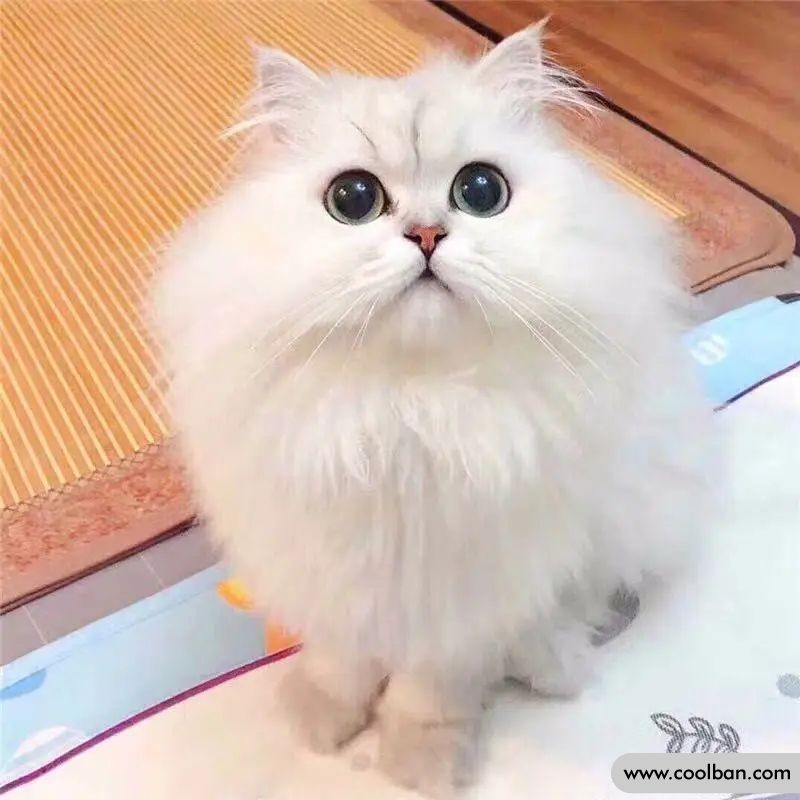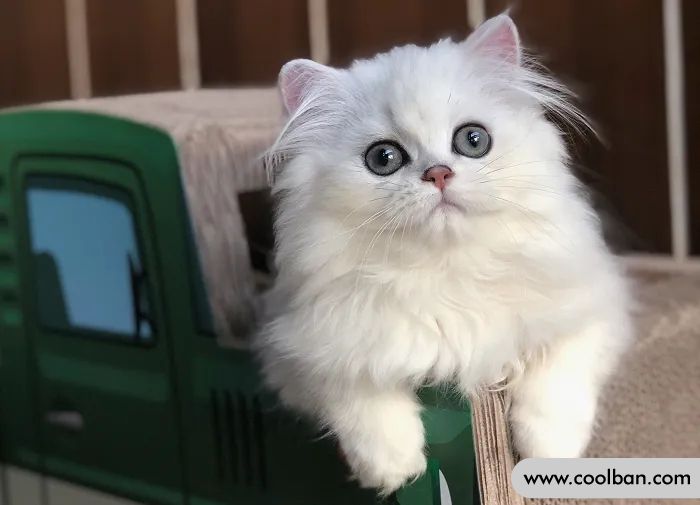Jinjila cat care knowledge
Chinchillas are native to England, and their ancestors are Angora and Persian cats. Some people call Chinchillas faux cats. From this nickname, we can glimpse the life experience of Jinjila cat. They are deliberately bred by humans. In addition, what most people may not know is that the Chinchilla was the first purely captive feline, which appeared in 1894.
Character traits of Jinjira cats
Chinchillas are bred from Persian cats, so Chinchillas and Persians have some similarities, such as they like to be quiet and don’t always disturb the breeder; they are empathetic and happy to be close to people; they are naturally intelligent , easy to train, etc. But Chinchillas also have some personality traits that are more pronounced than Persians. Let's take a look at which characters of the Chinchilla cat are more prominent.
First of all, like the Persian cat, the Chinchilla cat looks noble and gorgeous, and is a nobleman among the nobility. However, Chinchilla is more of a "master" than a Persian cat. They don't see themselves as your "subjects" and everything they do is for a better life for themselves. So, if you want Chinchilla to listen to you, it is best to guide the cat as a friend, otherwise they will also have a rebellious mood.

Secondly, although Chinchillas also like to be quiet, they are a little more lively and agile than Persians. In order to ensure that the cat has enough exercise, the breeder can play a small game with the cat every day. If you don't have enough time to spend with your cat, prepare more toys so that your cat won't feel lonely and unbearable without someone to accompany her.
Third, Chinchillas are sometimes willful. When the breeder encounters the cat's small temper, it can be induced by other methods such as treats to make the cat more receptive to your instructions.
Lastly, Chinchillas love to clean. They lick their paws when they have nothing to do, clean their hair and more. The purpose of this is to remove odors and dust from them. It's important to note that cats who lick their bodies frequently may swallow excess hair, and breeders can feed them cat grass on a regular basis.

Jinjila cat care knowledge
1. Pay attention to gastrointestinal skin care
Caring for a Chinchilla is like caring for a Persian cat. Pay more attention to their gastrointestinal and skin care. Because Chinchilla cats have excessive facial secretions, facial cleansing is also essential.
2. Keep your home dry
Chinchillas are best suited to dry environments. If you are caring for your cat, you may need to turn on the air conditioner or dehumidifier for the cat to reduce humidity and make life more comfortable.
3. Brush your hair every day
For grooming care, breeders should spend 5 to 10 minutes a day. Groom your cat to avoid tangles in the undercoat. Cats who don't brush their teeth often may need to cut or shave all their hair because the knots are too tight; messy hair is also a breeding ground for bacteria, you must not be lazy if you love cats!

4. Clean your body regularly
If the living environment is humid and debris accumulates in the house, the cat often has the opportunity to move around and is easily covered with dust. The breeder should clean the cat's body every 2 to 3 weeks; conversely, if the breeder can keep the house dry, the cat only needs to be bathed every 2 months.
5. Regular quantitative feeding
In terms of feeding, it is recommended to feed Chinchilla cats in a "timed and quantitative" way, because this makes it easier for breeders to detect when the cat has no appetite and prevents the cat from getting sick or indigestion.
6. Patience training
Do not train Chinchilla for more than 15 minutes at a time. For the best training results, breeders can train cats before meals, as cats are the easiest to train at this time. If the cat doesn't learn the skills you teach for a long time, you can't reprimand or even physically punish the cat, or they may never want to learn it again.
